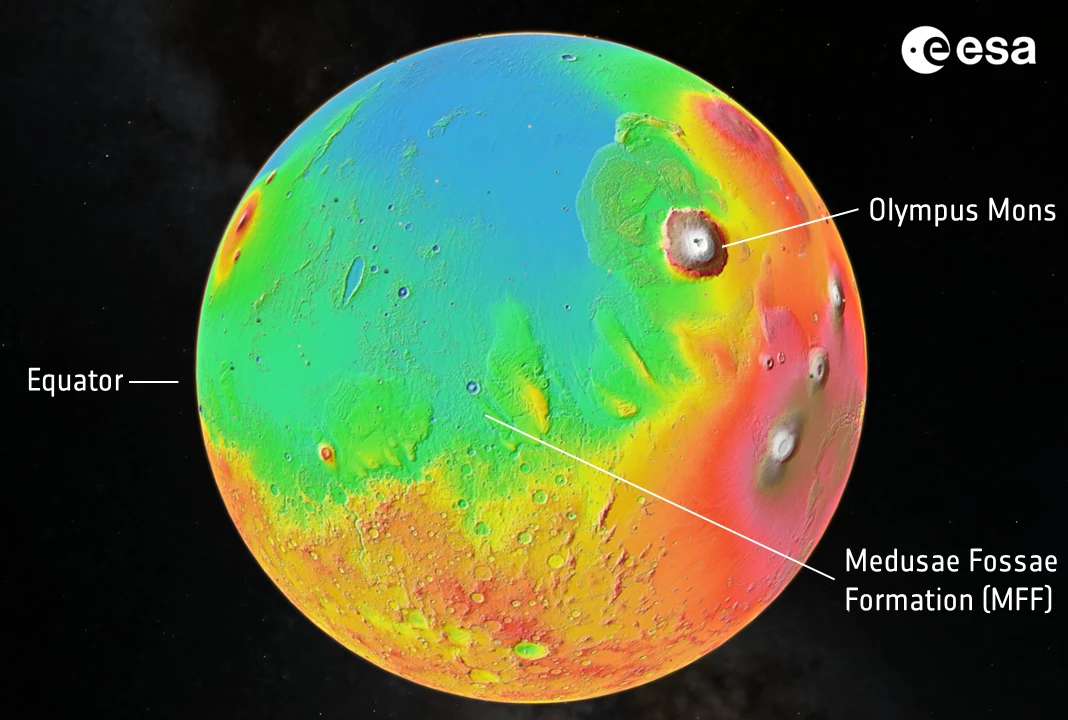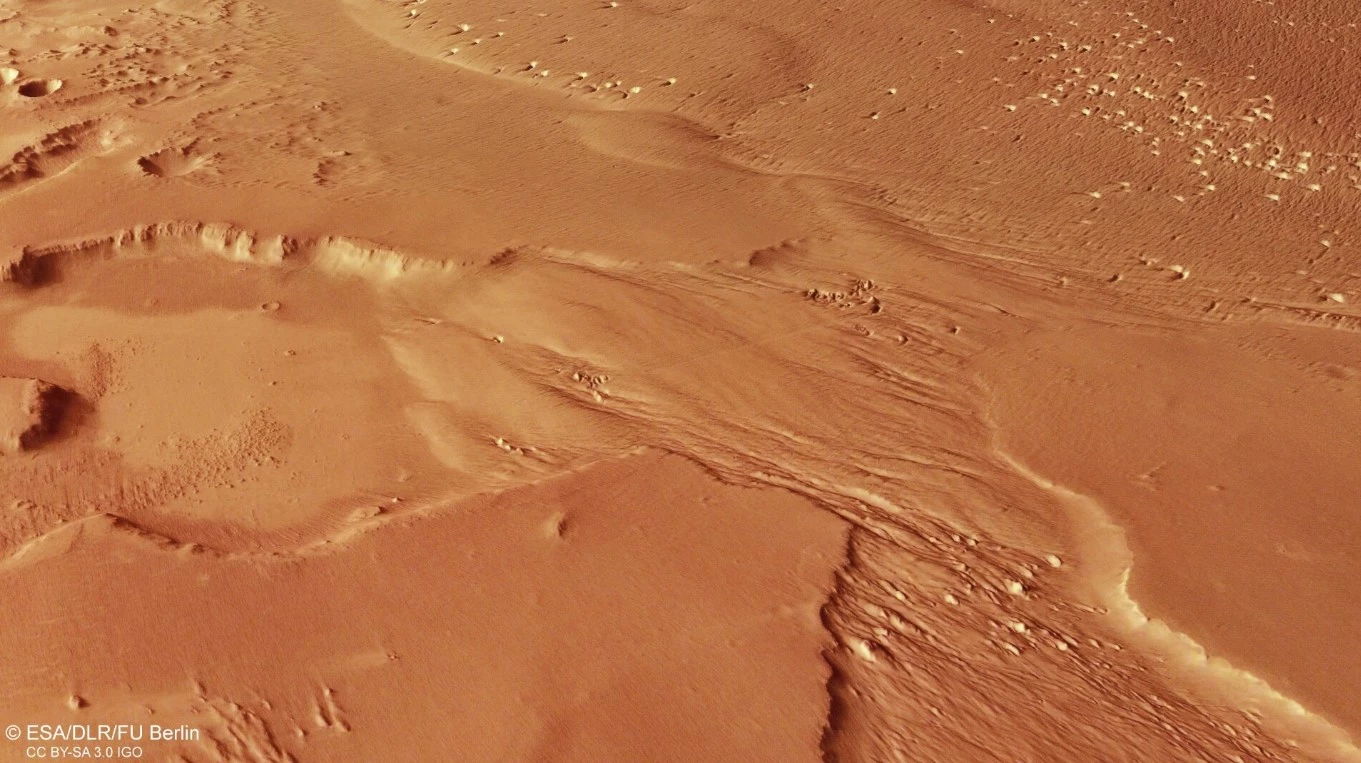Data from ESA's Mars Express indicates that there may be subterranean ice deposits at the Martian equator that are up to 2.3 miles (3.7 km) thick. With enough water to fill the Red Sea, this could be a tremendous resource for future Mars colonies.
The modern Martian environment is about as dry as you can get. Scientists often use Earth's Atacama desert as an experimental stand-in, but the Atacama, though one of our planet's driest spots, is a tropical rainforest in a monsoon compared to Mars.
That isn't to say that the Red Planet is completely without water. There are ice caps at the poles and the geology indicates that billions of years ago there was abundant running water on Mars, including a shallow ocean where there are now great plains.

There are also deposits of water ice beneath the surface. The question is, where and how much is there? It's of more than academic interest because if one day humanity decides to colonize Mars, it will need sources of water other than carting it down from the poles like Perceval Lowell's speculative Martians.
Of particular interest is the Medusae Fossae Formation (MFF), which is a sedimentary deposit at the equator that covers an area the size of India. The single greatest source of dust on Mars, it now turns out that it may be a water bonanza as well.
The evidence comes from ESA's Mars Express orbiter, which is equipped with a ground penetrating radar. Fifteen years ago, the spacecraft found sedimentary deposits deep inside the MFF. The mystery was, what were these layers made of?

One possibility was that the layers were made of dust or volcanic dust, which are transparent to radar in a similar way that ice is. However, such dust would be denser than ice because it would compact under its own weight while ice wouldn't. Computer models demonstrated that dust or ash wouldn't match, yet layers of ice and dust would.
If it does turn out to be water ice, it would be the single largest water deposit on Mars. If melted, it would be enough to inundate the planet to a depth of up to 8.9 ft (2.7 m). Such a massive water resource would be a boon to future colonists, but only after a great deal of effort to extract it.
"This latest analysis challenges our understanding of the Medusae Fossae Formation, and raises as many questions as answers," said Colin Wilson, ESA project scientist for Mars Express and the ESA ExoMars Trace Gas Orbiter (TGO). "How long ago did these ice deposits form, and what was Mars like at that time? If confirmed to be water ice, these massive deposits would change our understanding of Mars climate history. Any reservoir of ancient water would be a fascinating target for human or robotic exploration.
"Unfortunately, these MFF deposits are covered by hundreds of meters of dust, making them inaccessible for at least the next few decades. However, every bit of ice we find helps us build a better picture of where Mars’s water has flowed before, and where it can be found today."
Source: ESA








